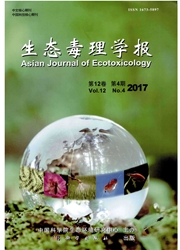

 中文摘要:
中文摘要:
我国是世界养猪第一大国,生猪饲养量和猪肉产量均位居世界第一。养猪业每年所产生的粪便、废水中含有大量畜用抗生素及其代谢产物,使养猪业废弃物成为环境中重要的抗生素污染源之一,随之产生的抗性基因污染及传播问题也不容忽视。本文结合近年来国内外的研究数据,对我国养猪业废弃物中四环素类、磺胺类抗生素及其相关抗性基因的检测方法、污染状况及影响抗性基因传播的因素进行了分析,并基于控制我国养猪行业抗生素及抗性基因污染的目的,提出了今后的研究重点。
 英文摘要:
英文摘要:
China has the world' s largest pig industry in the number of hogs and the amount of pork production. The swine manure and wastewater produced from the pig industry contain a number of veterinary antibiotics and their metabolites, which make the swine waste an important pollution source of antibiotics to the environment. The subsequent contamination and dissemination of antibiotic resistance genes (ARGs) cannot be overlooked. Based on the research data in recent years, the detection methods and pollution status of tetracyclines, sulfonamides and the corresponding ARGs, as well as the impact factors on the dissemination of ARGs in the Chinese pig industry, were summarized in this paper. Moreover, the focus of further research is also proposed for the purpose of controlling the contamination of antibiotics and ARGs caused by the Chinese pig industry.
 同期刊论文项目
同期刊论文项目
 同项目期刊论文
同项目期刊论文
 Occurrence and partition of antibiotics in the liquid and solid phases of swine wastewater from conc
Occurrence and partition of antibiotics in the liquid and solid phases of swine wastewater from conc 期刊信息
期刊信息
